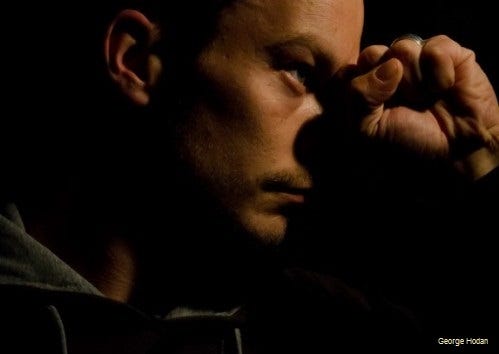The Bane of Sons of Narcissistic Fathers

Sons of narcissistic fathers are driven by lack of confidence. Raised by a self-centered, competitive, arrogant father, they feel like they can never measure up or are enough to garner their father’s approval. Their father may be absent or critical and controlling. He may belittle and shame his son’s mistakes, vulnerability, failures, or limitations, yet brag about him to his friends. He may boast about inflated versions of his achievements, while disparaging those of his son. A narcissistic father may ruthlessly bully or compete with his son in games, even when the boy is a less-capable child. Similarly, he may be jealous of his wife’s attention to the boy, compete with him, and flirt with his girlfriends or later wife.
Lack of empathy is typical of narcissists. Many narcissistic fathers are authoritarian and rigid about how things should be done, the correctness of their opinions, and getting their way, portrayed by Robert Duval in the movie The Great Santini. (Pratt & Carlino, 1979)
Franz Kakfa articulately describes a literary example of such an imposing intolerance in Letter to His Father: “What was always incomprehensible to me was your total lack of feeling for the suffering and shame you could inflict on me with your words and judgments.” Arrogant and overly confident, his father listened to no one, but judged everyone without any need to be consistent. His rules and decrees were conveyed in a “frightful, hoarse undertone of anger and utter condemnation … [that] only makes me tremble less today than in my childhood…” The fact that those commandments didn’t apply to himself made them all the more depressing to Kafka. (Popova, 2015)
As a result, Kafka lacked confidence, courage, and resolve. Like other children of narcissists, he internalized guilt and the projected shame of his father. He became so insecure and fearful, he was unsure of everything, “even of the thing nearest to me, my own body,” eventually leading to hypochondrias.
When narcissistic fathers get involved with their son’s activities, some take over, micro-manage, or are hypercritical. Frequently, narcissists are perfectionists, so nothing their child does — or who he or she is — is good enough. Seeing their child as an extension of themselves, they become overly involved and control their son’s lives, education, and dreams, as did the father in the movie, Shine (Scott & Hicks, 1996)
Alternatively, fathers may be physically or emotionally remote and wrapped up in their work, addiction, or own pleasures. They act like giving attention to their son’s needs, feelings, and interests or showing up at their games and activities is unimportant and a burden, even though they might provide for him on a material level. In either case, such fathers are emotionally unavailable. Because they deny and disdain their own dependency and vulnerability, they often shame and belittle any sign of distress or weakness in their sons.
Kafka suffered predominantly from emotional abuse. He writes that although he rarely got a whipping, the constant threat of it was worse, as well as the guilt and shame he endured when he received a reprieve from one that he “deserved.” Some narcissists are physically cruel. One father made his son dig a swimming pool; another, cut the grass with a razor blade. [See How People Change, (Allen Wheelis, 1973)]
Abuse makes a child feel helpless, afraid, humiliated, and enraged due to feelings of injustice and powerlessness. As an adult, he may have conflicts with authority and not manage anger well. He turns it on himself or others and becomes aggressive, passive, or passive-aggressive. He may suffer from shame anxiety, fearing that they will be criticized or blamed, even though his worries are unjustified.
Sons who do not become narcissists themselves, suffer from codependency. The message they’ve received is that they’re somehow inadequate, a burden, and that they don’t measure up to their father’s expectations–basically, that they’re unworthy of love–despite the fact that they may feel loved by their mothers; because children need to feel that both parents accept and love them for who they are. They’re deeply moved receiving an apology or crumbs of love that other people take for granted, as Kafka describes when he was sick. He was overwhelmed with tears when his father merely looked into his room and waved at him. All Kafka wanted was, “a little encouragement, a little friendliness, a little keeping open of my road, instead of which you blocked it for me, though of course with the good intention of making me go another road.”
Growing up, abused children frequently learn to be self-sufficient, guarded, and devalue their dependency and emotional needs, leading to intimacy problems. They may marry a narcissist, abuser, someone cold, critical, or emotionally unavailable. See Dealing with a Narcissist: 8 Steps to Raise Self-Esteem and Set Boundaries with Difficult People.
Sons may be driven to achieve, in an attempt to get validation and the approval of their father, but their success feels hollow. It’s never enough — even for themselves. They need to learn to be assertive and to set boundaries in healthy ways not modeled and unthinkable growing up. They also need to value themselves and raise their self-esteem and confidence. Many have suffered from lifelong inner loneliness due to growing up in a family in constant turmoil and/or lacking emotional closeness. However, healing their shame and learning to comfort, accept, and love themselves and receive love are possible. See Conquering Shame and Codependency: 8 Steps to Freeing the True You.
©Darlene Lancer 2016, 2017
Popova, M. (2015, March 3) “Kafka’s Remarkable Letter to His Abusive and Narcissistic Father.” Retrieved from https://www.brainpickings.org/2015/03/05/franz-kafka-letter-father





